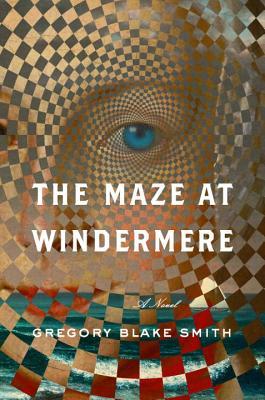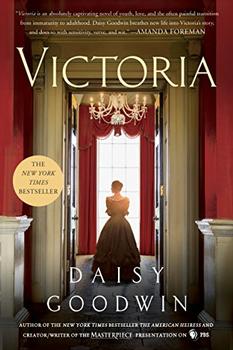Summary | Excerpt | Reading Guide | Reviews | Beyond the book | Read-Alikes | Genres & Themes | Author Bio

A Novel
by Daisy GoodwinSometimes you want a novel to do more than tell a story. You want it to mix a dashing male lead who pays homage to Jane Austen's characters with a spunky heroine who conjures memories of Scarlett O'Hara and dramatic settings in the tradition of the Sherlock Holmes stories. Oh yes - and you want the said novel to be an easy, light read with a pace that can keep up with its lively characters. You want something that doesn't require a lot of effort or thought, but provides a great deal of drama and sass. When you're in such a mood, Daisy Goodwin's The American Heiress (titled My Last Duchess in the U.K.) fits the bill.
Pieces of this debut novel from Daisy Goodwin remind me of the young adult novels I enjoyed as a preteen: the Journey to America series, The True Confessions of Charlotte Doyle by Avi, and even The Swiss Family Robinson. These stories are all written in a linear, plot-driven fashion and contend with issues of self-reliance, independence, and adventure. Such elements are strong in The American Heiress and are arguably stronger than the historical content and glamorous settings found within the book. The novel centers on transatlantic issues and how the contrast between the old and new world influences feminism, race, and class. Often, though, these issues are presented through stereotypical conventions: a poor African American from South Carolina, a restrictive corset, a timid English scullery maid.
Goodwin does not, as the book jacket claims, write in the vein of Edith Wharton and Jane Austen, but she does construct characters that wear similar clothing and eat the popular foods of Wharton's Gilded Age. Unfortunately, American Heiress suffers from too many issues of craft and construction to place the book in the traditions of heralded nineteenth century authors: there's a reliance on plot tropes (fainting women, anyone?), a resort to stating character qualities rather than showing them through action, and the historical content can be summed up as "one too many Marie Antoinette references". Arguably, the story feels like it exists in some ambiguous time between the late 1700s and the early 1900s; with the exception of scenes in Newport, much of the novel feels unbound to a particular time period. Add into this mix of problems the fact that the main character lacks personality and isn't a particularly likeable individual.
Yet, despite these foibles, I truly enjoyed the story. It unfurls quickly, and the characters are recognizable and easy to get to know. It's good, plain old pleasure reading that provides an escape to a world that is opulent and glorious, which is a welcome digression in times of austerity and economic flux. The pages fly by, and in the two days it took me to read the entire volume, I let myself relax into a dramatic flight of fancy. It's worth reading for the fun of reading, for the sake of being whisked off somewhere dramatic and regal. While I'm not always in the mood to read a book that will simply mute the rest of the world, occasionally I am, and in those times a story like The American Heiress is perfect.
![]() This review
first ran in the March 21, 2012
issue of BookBrowse Recommends.
This review
first ran in the March 21, 2012
issue of BookBrowse Recommends.

If you liked The American Heiress, try these:

by Gregory Blake Smith
Published 2019
A richly layered novel of love, ambition, and duplicity, set against the storied seascape of Newport, Rhode Island.

by Daisy Goodwin
Published 2017
Drawing on Queen Victoria's diaries, which she first started reading when she was a student at Cambridge University, Daisy Goodwin—creator and writer of the new PBS/Masterpiece drama Victoria and author of the bestselling novels The American Heiress and The Fortune Hunter—brings the young nineteenth-century ...
A book is one of the most patient of all man's inventions.
Click Here to find out who said this, as well as discovering other famous literary quotes!
Your guide toexceptional books
BookBrowse seeks out and recommends the best in contemporary fiction and nonfiction—books that not only engage and entertain but also deepen our understanding of ourselves and the world around us.